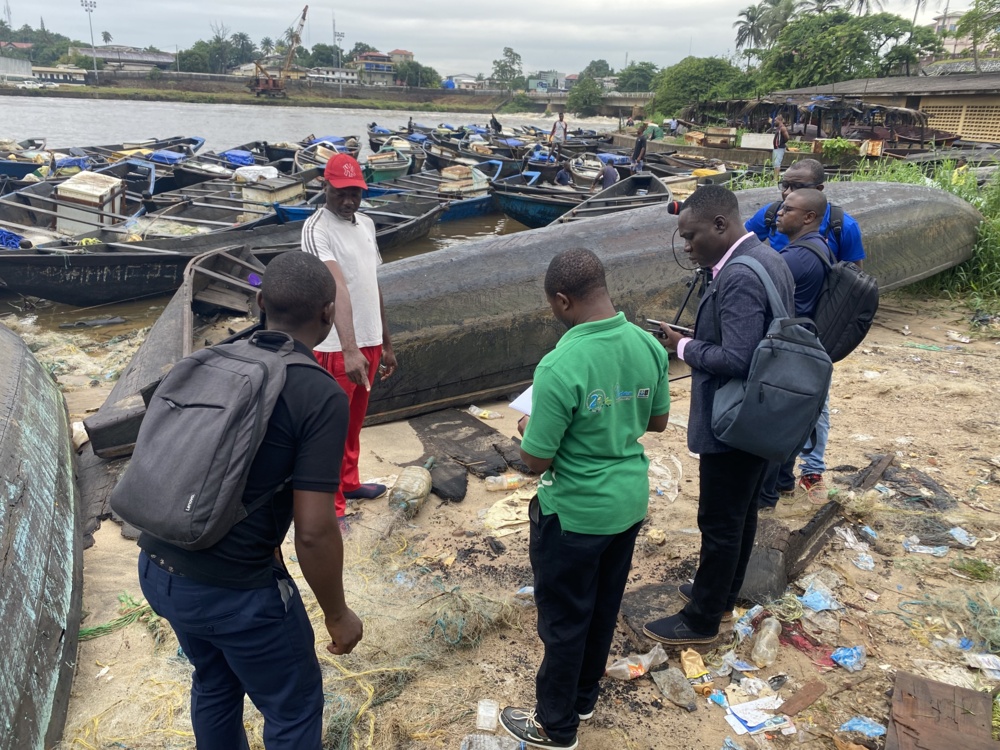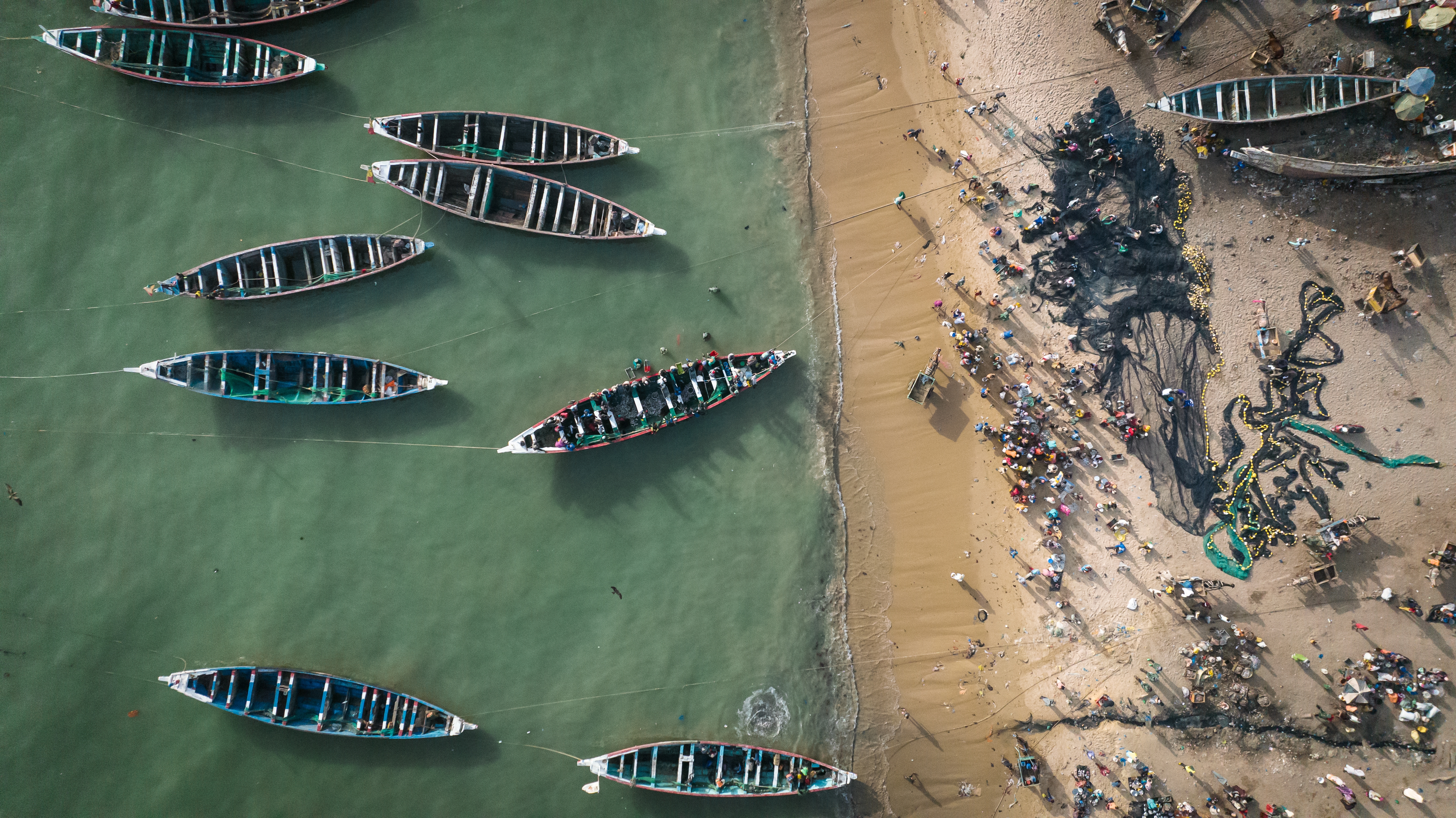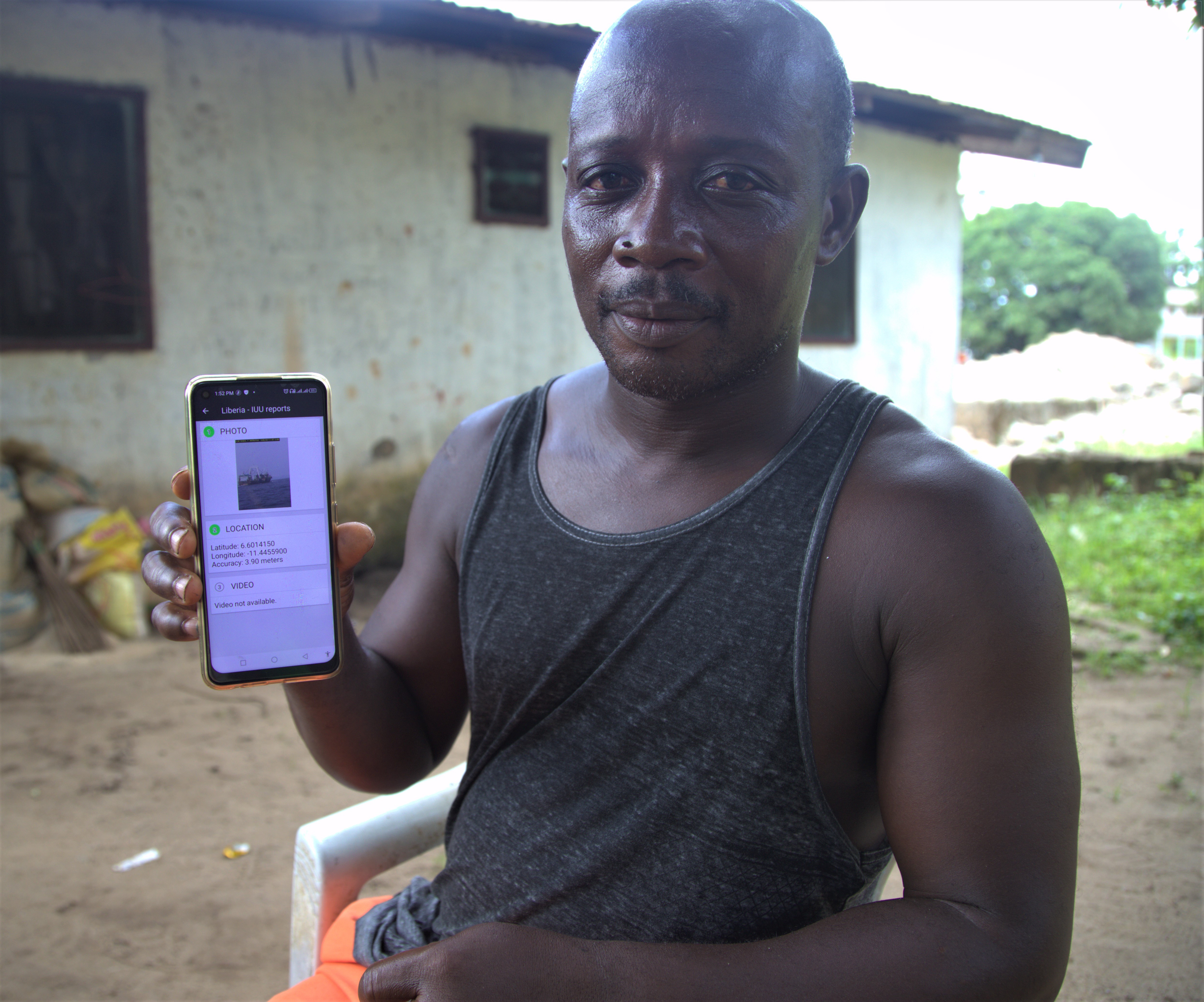
EJF in action: supporting environmental journalism in Cameroon
Transparency is essential to fight illegal fishing and ensure a safe, sustainable ocean. One key aspect of driving transparency in global seafood production is media reporting on illegal fishing, telling the stories of those affected and making the case for change. Without journalists raising the alarm on the crimes and abuses, those responsible can evade sanctions more easily. We cannot stop what we cannot see. In Cameroon, where fisheries make up 3% of total GDP, we are working with local journalists to build understanding of the effects of illegal fishing.
Together with the African Marine Mammal Conservation Organisation (AMMCO) and the Ministry of Livestock, Fisheries and Animal Industries (MINEPIA), we recently provided training in meeting rooms and out in the field, giving journalists access to our campaigners and to local fishers who are directly affected by illegal fishing. We have also set up a digital network for Cameroonian journalists to share tips, advice and stories with one another, in French and English. This training took place at the Street Whale 2023 fair organised by AMMCO.
One participant said that “I can't say that I'm already an expert on the subject, but the knowledge I've acquired already gives me a basis. This course has inspired a lot of interest in the subject from my fellow journalists here. I would like to thank the organisers for making this training possible.”
Several articles have already been published by journalists who attended the training, and there is lively discussion and ongoing progress on further coverage.
Cameroon is currently under a ‘red card’ sanction from the EU under the latter’s illegal fishing legislation. This red card highlights that Cameroon was not taking sufficient action to tackle illegal fishing, and undermines its international image. It is one of the reasons why exports to the EU are currently impossible. The Cameroonian government is working to lift this ban, and accurate, fair environmental reporting can support these efforts.
Some important progress has been made: no new fishing vessels have been registered under Cameroon’s flag since the Prime Minister set up a working group to have the sanction lifted. In addition, the decision by the Cameroonian authorities to publish a vessel licence list brings vital transparency to Cameroon’s fisheries - a key first step towards a safe, sustainable ocean.
It is now time to build on this progress. In 2022, we found that 94% of the new vessels added to Cameroon’s fleet in the last five years fish outside Cameroon’s waters, employ no Cameroonian fishers, and do not land fish in Cameroon’s ports. In short, they risk tarnishing Cameroon’s reputation for no benefit. Removing the registration of vessels believed to be using Cameroon’s flag as a flag of convenience would send a strong signal that illegal fishing has no place in Cameroon.
Beyond that, enshrining the principles of the Global Charter for Fisheries Transparency into law, and communicating directly with the EU on progress made, can help to lift the red card. It can bring the twin tragedies linked to illegal fishing - human rights abuses and environmental destruction - to an end, supporting a thriving blue economy in Cameroon at the same time.
We continue to work in close partnership with communities and national authorities to put an end to the illegal fishing that is devastating the ocean around West and Central Africa as part of our wider, global, programme of training and support to environmental defenders and journalists. Together, we can bring fisheries out of the shadows and ensure a safe, sustainable future for us all.
SIGN UP FOR OUR EMAILS AND STAY UP TO DATE WITH EJF

